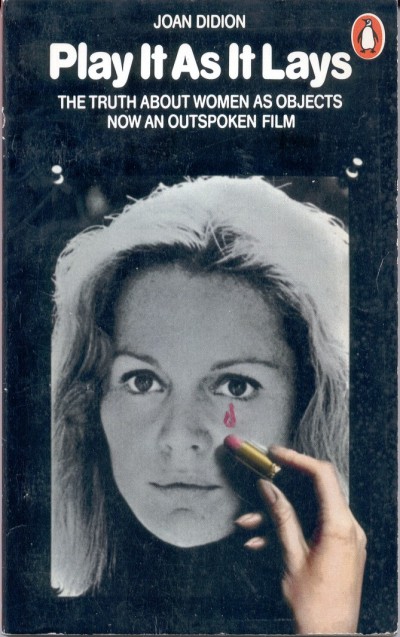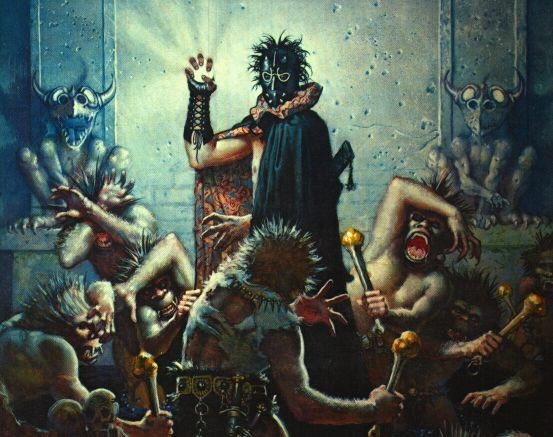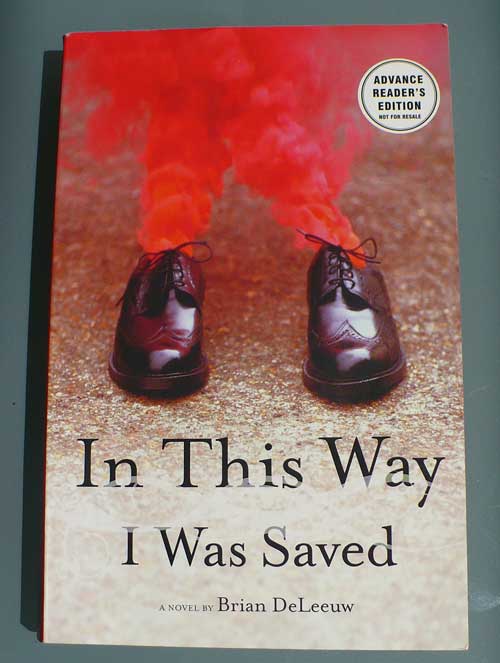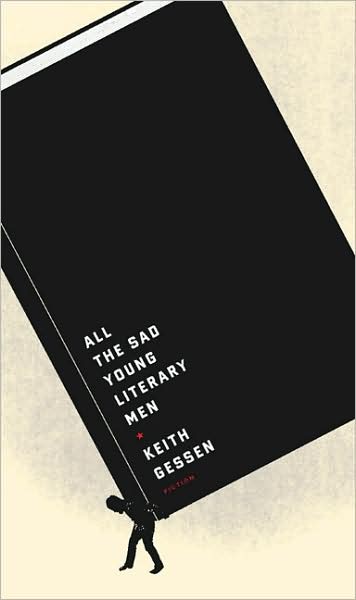 BOOKS
BOOKS In Which We Pay Mind To Author Photographs And Facebook
 Wednesday, January 26, 2011 at 10:32AM
Wednesday, January 26, 2011 at 10:32AM 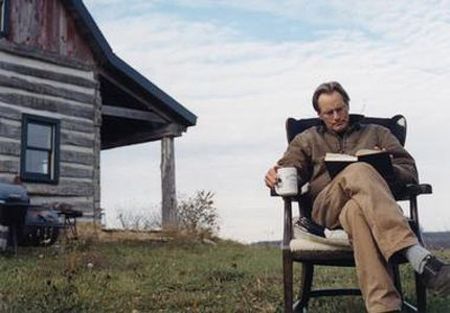
Cowgirl Mouth
by MOLLY LAMBERT
To become an author photograph, you must stop being yourself. You must sit in a chair looking serious, possibly on a deck or otherwise inside a room filled with books. You must stare off as if possessed by thought, and then you must pretend you are thinking about something besides how the picture is going to look. You must not make the face that you actually make while writing, or you will look crazed.
Some people prefer to look crazed, but that's a very specific kind of author photo and those people are usually Hunter S. Thompson impostors lacking in the effortless stylishness and talents of the actual Hunter S. Thompson. William S. Burroughs also preferred to look cool. A crazed photo will not make your writing any more crazed.
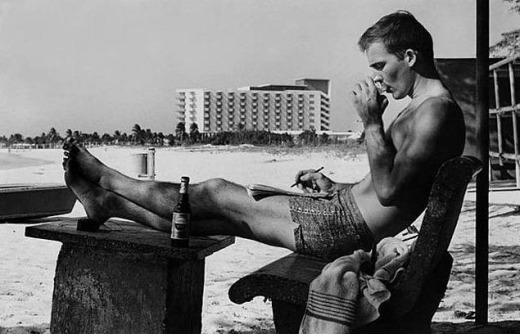
A good author photo will last you several books. A truly iconic image can be repeated infinitely. If you are attractive enough, you can put the picture on your book. If you are a talented enough writer, no one will suspect that anyone buys your book because of what you look like. If you are a man, putting a picture of yourself on the cover implies some self-seriousness, especially if you are handsome. If you are a woman, putting a picture of yourself on the cover implies frivolity or that you are a C-List celebrity trying to sell books. Most serious new books do not have author photos on the front.

Unless you are Patti Smith. If you are Patti Smith you can do whatever the fuck you want. Also if you are Susan Sontag or Joan Didion or Hannah Arendt. People take a woman seriously so long as she is not also trying to seem beautiful. If she can fake a lack of vanity, or transform her vanity into an attack on generalized female vanity.
I have looked at Sam Shepard's author photograph countless times. People don't automatically think that Sam Shepard is trying to seem handsome in his author photo because male beauty is assumed as a thing that just is, that naturally exists. In actuality all beauty is somewhat acted, even in the beautiful. A candle must be lit.
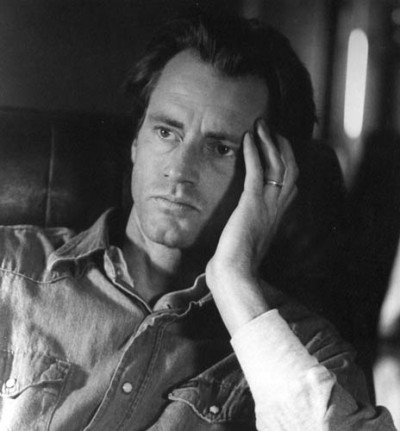
What does Sam Shepard want us to know about himself? That he is married, or at least that he sports a wedding band. He wears a denim work shirt to show his allegiance to the West (although he is from Illinois) and to demonstrate a kind of folksiness, to differentiate himself from all the authors in their starched oxford shirts or sweaters or white suits. To show us that he is a Sam, not a John, and everything that implies.
How do you decide what face best represents you? How can you possibly pick one image of yourself to represent you at all times? If you pick a serious photograph you are discounting all the times you are not serious. If you pick a smiling photograph, the light-heartedness seems grotesque because it was so obviously faked or staged.
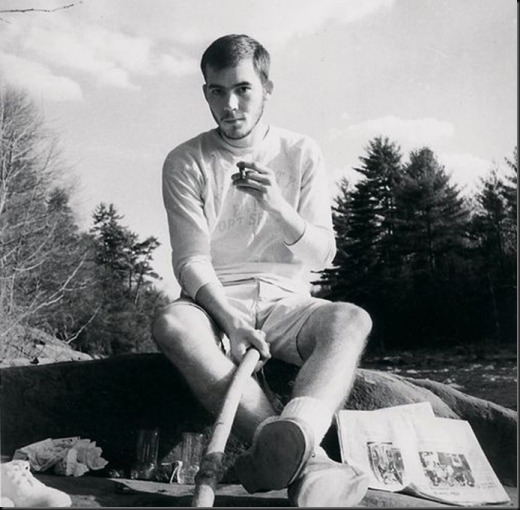
Hunter S. Thompson holding a stick suggestively as a young man without sunglasses
But no person is entirely funny or serious, so one photograph seems impossible. Maybe two photographs next to each other, one representing each. Maybe one superimposed on the other. The other solution is to smirk, which implies seriousness and humor at the same time. Some people use candids, but they're still choosing which one. Any face you make in a self-take will seem ridiculous, because it will be.
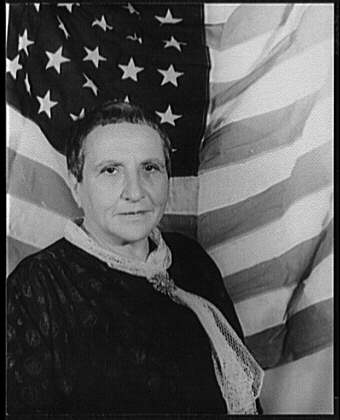
Gertrude Stein by Carl Van Vechten
Not too long ago it was taboo to put a picture of yourself up on the internet. It was something reserved for only the truest geeks who it was assumed had nothing to lose in devaluing their privacy, feelings about which are a true generational gap, (although obviously now your grandparents are on Facebook) and dating websites, which were also considered taboo. It implied a kind of sad desperation. It still carries some of those connotations. People feel more ashamed using Photobooth than PornHub, but there's hardly a person alive that you can't find a picture of now on the internet.
When I get spam friend requests on Facebook I always spend some time looking at the picture and wondering who they are, whether their personality bears any resemblance to the fake facts in their info section, what the actual original context of the picture was and whether they know they are being used to represent an imaginary human being. It's like having a staring contest with a robot. If you win, it explodes.
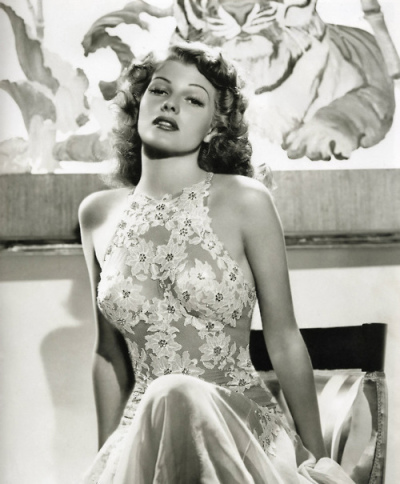 Rita Hayworth photographed by George Hurrell
Rita Hayworth photographed by George Hurrell
The author photo was previously only an issue if you were famous or notable. As a kid I used to pore over a book of George Hurrell photographs that had the unretouched photos on one side and the finished images on the other and wonder why the real pictures of movie stars looked less "real" to me than the retouched ones. How I recognized Bette Davis and Ginger Rogers in the pictures with blown out exposure and dramatized contrast, and who were these strange mundane people right next to them?
You go to bed with Gilda and wake up with Rita Hayworth. You go to bed with Rita Hayworth and wake up with Margarita Carmen Cansino. You cannot wake up with Gilda. How could it be I had never noticed the retouching before then? I had just accepted automatically that the finalized image was truth. Thus is Facebook.
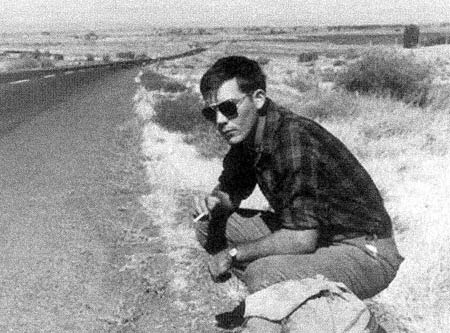
Hunter S. Thompson, a few cool guy accessories and a plaid flannel later
What's especially amazing is that nobody had to be taught how to do it. Everyone just understood how from viewing and absorbing images, a process jacked to warpspeed by the internet with sites like flickr and tumblr. I used to have boxes full of pictures I cut out from magazines. Everyone has seen enough album covers, enough movie posters, enough author photos, to understand how to present themselves in a picture.
Once you start thinking about this, it is impossible to stop. You can't look at anyone's facebook pictures of themselves without determining how they are trying to portray themselves, how they want to be perceived: cool, pretty, fun, serious, goofy. You are never just being yourself in a photograph. You are being yourself in a photograph.
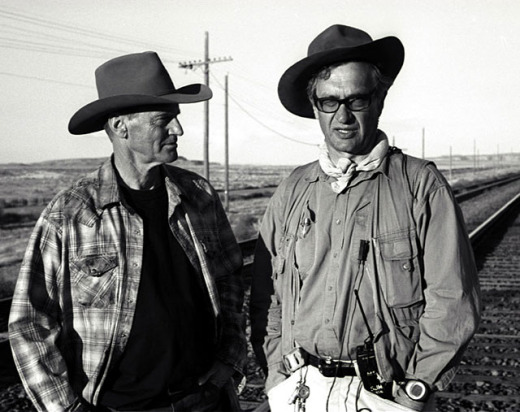
Sam Shepard and Wim Wenders
What is it that men see in cowboys that they want so much to see in themselves? A natural seeming lack of desire to demonstrate or communicate feeling? A sort of wildness, freedom from constructed identity, even though "cowboy" is one of the most deliberately constructed identities there is? Writers seem particularly drawn to them because they represent pure physicality, a direct line between being and deeds. As if cowboys never stay up at night in cluttered rooms thinking about who affects them.

It's why I fantasize about being a doctor even though it is as ridiculous for me to say I'd like to be a doctor as to say that I would like to be a duck, and yet I still fantasize about both in equal measures for the same basic reason. A purpose of spirit divorced from personal purpose of mind. An objective practice with concrete goals.
The illusion that all that matters is whoever's on the operating table that day, or however many cows need to be roped, and then you're too exhausted from the physical fullness of your work to take it home with you. But of course you do.
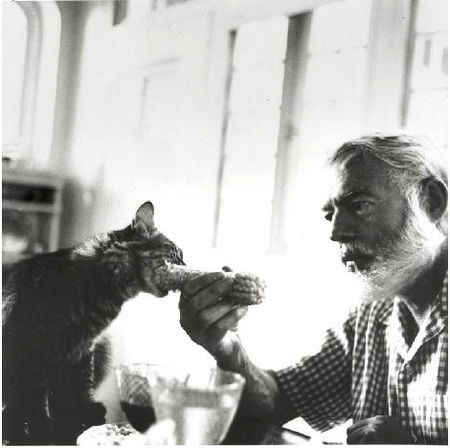
Fact: Ernest Hemingway was forced to wear a pink gingham dress as a child
People romanticize cowboys for the same reason they romanticize gangster rap. It is the idea that there exist somewhere men for whom masculinity is natural, not a performance. The biggest lie of course, in rap and also Westerns, is that anyone exists who can kill people and have no feelings about it. That is how countries get men to join the army and go to war, by glamorizing this idea, and why they then get PTSD (shellshock) and are fucked up about it for the rest of their lives. The Wire is essentially a treatise on the endless fucked up cycle that permits and reinforces this.
It is a partial lie that distracting the body can distract the mind. When the mind is overly preoccupied there is literally nothing that can distract it from itself. ("There is no geographical solution to an emotional problem.") The illusion I have that doctors live a professional life uncomplicated by personal relationships? I know it is a total lie. The doctors I know have told me that it is a lie. Everyone imagines themselves succeeding in some field that is different from the one they have chosen to pursue. All fields are equally ensemble casts. That is why ensemble casts are so relatable as an idea.
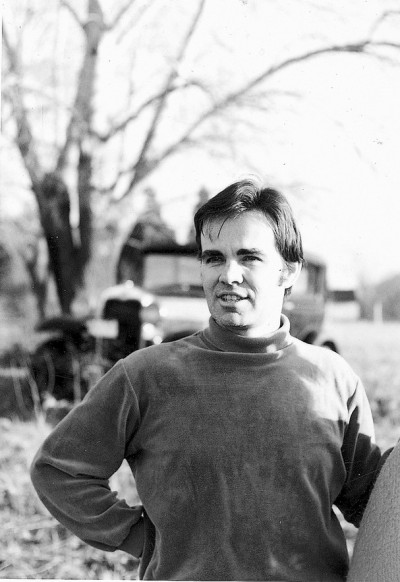
Cormac McCarthy as a young man, not yet a professional fake cowboy
Cormac McCarthy is from Providence, Rhode Island. He is as much of the West as H.P. Lovecraft is of R'lyeh or Yuggoth. The only citizen of a place that exists entirely in his mind. I often think about Cormac McCarthy being a kid fantasizing about the West, and then I think about my own childhood fantasies of New England.
I like to think about the childhoods of people I can't imagine as children. I just picture them as a tiny version of whatever they look like now. It's especially funny with guys who have facial hair. Rhode Island is the smallest state, California one of the largest, but they are equal sizes in my mind.
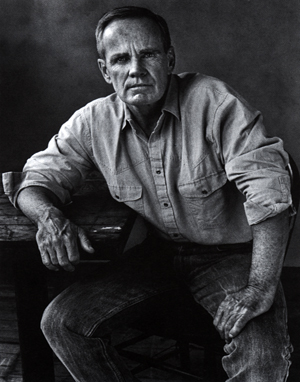 take me seriously because I am so very serious
take me seriously because I am so very serious
In New England during college, I developed my own Western fantasies. Finally delivered to the land of my teenage ideals, of real seasons and people who care about books, I started dreaming about the open plains. I thought about avocados and listened obsessively to Gene Clark and Gram Parsons. I could always locate myself much more easily in lonesome men than in their female counterparts. There was something too affecting to me about female plaintiveness. A part of myself I did not wish to have. But then I listened to Emmylou Harris and Dolly Parton and found myself in there too.

Larry McMurtry, champion of the emotional cowboy
We long for companionship, and then we long equally to be alone. That is what Westerns are about: pursuing aloneness together. You love the people who know you best, who know you as much as anyone can. They keep you alive in the wilderness.
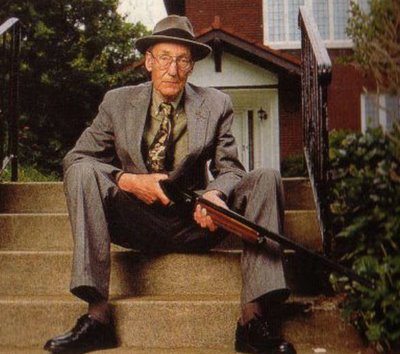
William S. Burroughs all eyez on me
Male loneliness is overly romanticized, female solitude overly demonized. There is occasional pleasure in loneliness because there is pleasure in being alone. The thing people actually like about Jennifer Aniston is that despite coming up in an ensemble cast show about friendship, she comes across as kind of a loner. Not a loser necessarily, although that is also a part of her charm. Mostly a loner (also, a stoner).

Aniston is a female take on 1970s antiheroes like Elliott Gould in The Long Goodbye or Jack Nicholson in Five Easy Pieces. She just needs to find a way to translate it back into film. Her best roles, in Friends With Money and The Good Girl, capture this about her. That quality of being a loner is also what women like about Angelina Jolie, Winona Ryder, and Aniston's closest predecessor Barbra Streisand. Actresses who seem like outsiders are the most beloved because all women feel like outsiders, since they are.
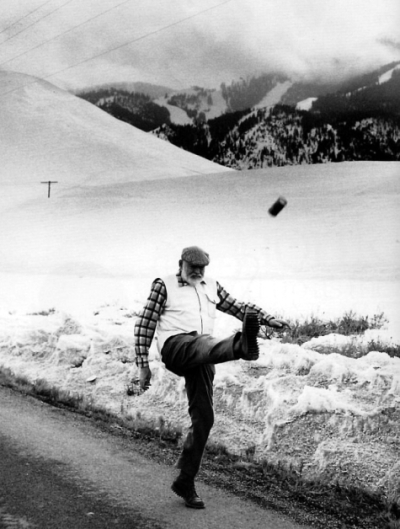
When you think of yourself, you think of yourself as you are with yourself. Not as you are with friends, although that is also how you are. You spend an inordinate amount of time in conversation with yourself every day of your life. That's why you go out in the world and live, to try and lose track of this conversation. Identity is contrast.
When you long for the West you are longing for space. For room between places and things but also between your thoughts. For a few years I used to say that New York made me feel overly claustrophobic. The buildings are so close together, I would say, they are pushing my thoughts that way too. But they weren't. It was just that I was pushing them that way. At its best New York pushes your thoughts upwards.
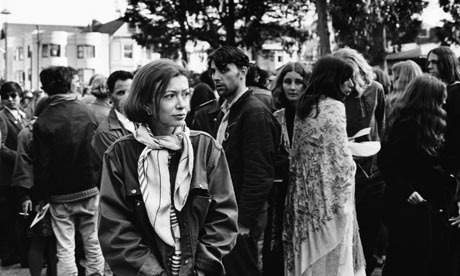
Joan Didion neckscarf diva
If you grow up intellectual in Los Angeles, you are constantly told that you do not belong there. People told me this so much growing up that I really believed it. Now I know you can be anything anywhere, an idiot in Paris or a genius in Des Moines (calm down IA intellectuals, I picked Des Moines because it's French and I like the way it sounds. Real G's move in silence like Des Moines.) That the people who think California is full of idiots bought an image they were sold, and they're no more foolish for believing it than I was for believing that New England would not also have idiots.
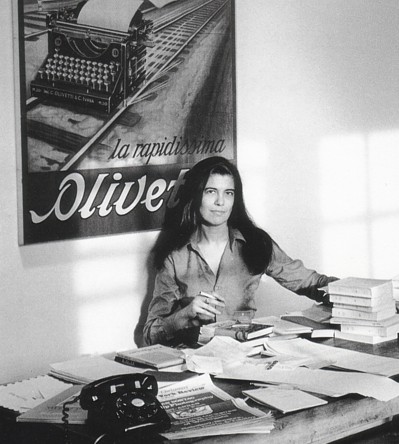
Susan Sontag stacking paper
The public narrative about Los Angeles is that its beauty hides a corrosive interior. That you can't have temperate weather and fruit out of season without being punished for it somehow. That the Black Dahlia and the Manson family murders and all the fires and floods and quakes and riots are retribution for something, for original sin, for the buying and selling of false images and idols. That pleasure creates Puritan debt.
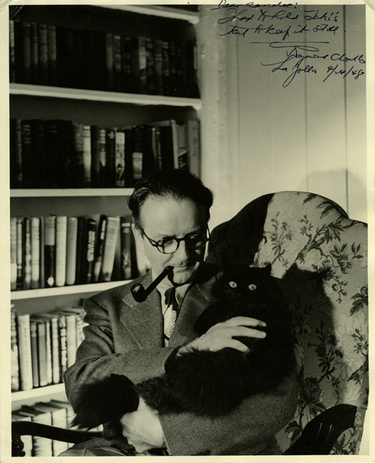 Raymond Chandler and friend
Raymond Chandler and friend
That concern with appearances means you care nothing about insides. That if something is beautiful it cannot also be serious. That if something is evil it cannot also be sometimes good. Even that artifice is automatically evil. I have never believed any of it. Los Angeles to me is edenic, even now knowing all its tricks. Los Angeles is corrupt but small towns have just as much sin. Los Angeles is a hooker with a heart of gold.

The internet is the open country of the mind. The promise of space, no boundaries or bindings, no MLA handbooks or proofreaders. No set ideas about how writing or images "should" be, just how they can be and are.
No prejudice against fragments and run-ons and parentheticals, which I have always felt are truer to the way people actually talk with each other than "real" sentences, which have rules that that can ruin translation of thought. No old gods.
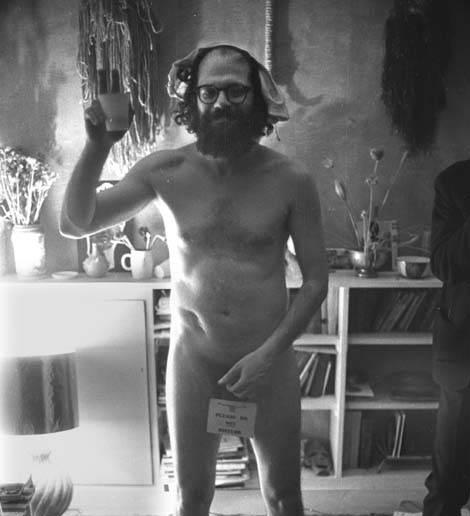
It is freeing to write a "bad" sentence. It does not destroy the integrity of the "good" ones. If anything it props them up, the way "fucking" can be the best modifier. If you make your point, it does not matter how you make your point. Informality helps.
That is the purpose of blogging, of writing, of poetry. It's why we love Gertrude Stein. She is the founding father of This Recording and Allen Ginsberg is the founding mother. They cared that words could not so they broke it.
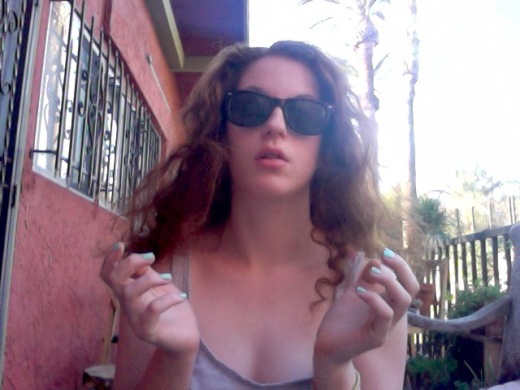
Molly Lambert is the managing editor of This Recording. She also tumbls, twitters and runs GIF Party and JPG Club. Go fuck yourself with your atom bomb San Diego. She last wrote in these pages about the internet.
